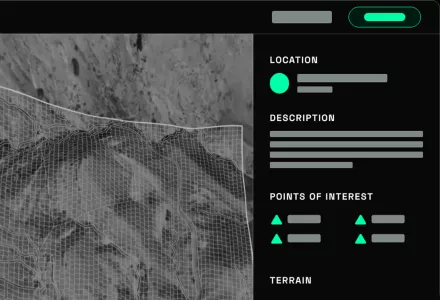
Executive Summary
In October 2021, more than 5,000 people from around the world who are part of a group called CityDAO pooled together over $8 million USD and collectively bought 40 acres of land in Wyoming to experiment with “building the city of the future on the Ethereum blockchain.” This unprecedented move made headlines in the crypto world, as it marked the first time that a DAO legally acquired and owned a piece of land on the blockchain.
DAO stands for decentralized autonomous organization. It is a digital-native organization that is typically governed by a set of smart contracts, or self-executing code on the blockchain, that enable members to propose and vote on decisions collectively, without the need for intermediaries or centralized authority found in traditional organizations. Members can interact with the DAO using digital tokens or cryptocurrencies, which give them voting power and influence over the organization’s decisions. DAOs have proliferated over the last few years, with activities ranging from making investments, funding public goods, conducting philanthropy, building new communities, and acquiring real assets. The versatility and uniqueness of DAOs have captured the interest and attention of researchers, investors, and policymakers alike.
CityDAO is one such example: it is a group of individuals who met online and collectively purchased a piece of land in Wyoming to experiment with collective land ownership and blockchain-based governance. The emergence of CityDAO coincided with a general concentration of interest and hype around the concept of “crypto cities.” From 2021 through mid-2022, mayors across the U.S. partnered with private companies to launch pilot projects exploring blockchain innovation for cities. These initiatives ranged from experimenting with putting municipal records on the blockchain to designing various versions of “city coins.” Meanwhile, states were eager to experiment with regulatory innovation to create favorable legal and regulatory environments for blockchain-based businesses and attractive locations for the formation and operation of DAOs. Although the fervor surrounding these ideas has diminished in recent months due to the collapse of cryptocurrency prices and certain prominent crypto companies, it is worthwhile to carefully examine and reflect on these experiences in order to extract valuable lessons for future best practices.
In this case study, we conduct a comprehensive analysis of the CityDAO experiment and explore the topic of DAOs and decentralized governance within the context of land ownership and community governance. Through a combination of gray literature review, semi-structured interviews with key members of the group, and digital ethnography of online activities, conducted between October 2022 and January 2023, we gained a comprehensive understanding of the project from the perspectives of technology, governance, regulations, stakeholders, and values. In the following sections, we first provide an overview of Wyoming’s DAO legislation, followed by an examination of the different phases of the group’s evolution, and conclude by extracting key takeaways and lessons learned from this remarkable experience. (Disclaimer: The authors of this paper are academic researchers who have no financial interest or stake in the DAO. The content of this post is for informational purposes only and does not constitute legal or financial advice.)
Key Takeaways
- Blockchain-enabled data transparency fosters scalable trust and coordination amongst strangers.
- Security and immutability of votes ensure confidence of voters who participate and more dynamic governance.
- Decentralization allows for more participatory democracy and turns members from participants to contributors.
- Pseudonymity encourages participation, but disclosure of identities is required for greater accountability and trust.
- Decentralized communication can bring challenges to accessibility and communication efficiency.
- Token-based voting can lead to the “DAO Plutocracy Problem.”
- Low levels of voter engagement leads to vetocracy and high coordination costs.
- The current regulatory landscape in the U.S. places limitations on blockchain-based fractional ownership of land (or other real world assets).
-
When implemented in actual urban settings, the decentralized and “network state”-like model for property ownership may be infeasible and undesirable.
Download the Full Report
Rong , Helena and Zeslene Mao . “Deep-Dive Into CityDAO: An Experiment in Collective Land Ownership and Decentralized Governance.” June 14, 2023





